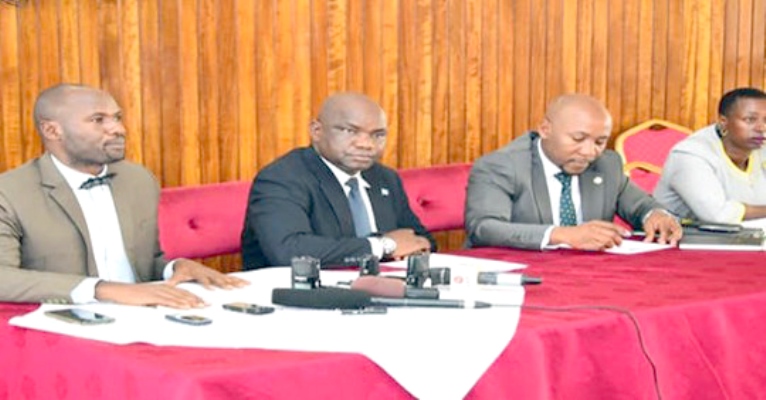News
Fight charcoal trade by lowering the price of electricity

MP Mbwatekamwa Gaffa, (Kasambya county) and one of the members on the newly launched Climate Change Committee said there is need to step up efforts to fight charcoal trade by lowering the price of electricity to make its use attractive.
“All of us here, including Members of Parliament, use charcoal,. If we cannot use electricity for cooking, how about the ordinary Ugandan?” he said.
Mbwatekamwa made the remarks during the launch of the Committee at Parliament.
During the inauguration of the committee, members threatened to review key government decisions regarding the environment, including the the planned give-away of Bugoma forest in Bunyoro and Zoka.
High electricity tariffs in Uganda, especially for domestic consumers are blamed for the high rates of deforestation as majority of Ugandans depend on natural biomass for cooking energy.
But calls about lowering the cost of electricity appear to be falling on deaf ears of those in government who are supposed to act on them, despite the fact that the country has excess power from hydro power dams.
The main argument that has been made, at least by the Energy Minister Irene Muloni is that high costs of power are a result of the need to recoup the money invested in building the power dams.
But critics say that keeping tariffs high and out of reach for ordinary Ugandans actually means that Ugandans are the losers since the government already pays for all the power that is produced and not the power that is consumed.
Eng. Frank Sebbowa, the former Executive Director of the Electricity Regulatory Authority (ERA) supports the government’s view that investors still have to recoup the bulk of their money they spent in construction of the new dams and distribution networks.
When asked why tariffs have remained high, and in fact comparable to those in other countries like Kenya, which uses more expensive thermal, Dr. Sebbowa said: “Tariffs depend on what it costs to generate and deliver electricity to the consumption point. Currently most of the power plants (in Uganda) have not paid off their construction costs. (and are thus charging highly to recoup the investment).
He added: “Thermal electricity in Kenya is mostly generated at the coast cutting out some fuel transport costs. These plants are old hence their installation costs have been fully paid off.”
But Dickens Kamugisha, the Executive Director of the Africa Institute for Energy Governance, a non-government NGO, thinks that the high tariffs are maintained to benefit a few well connected individuals.
“The actual reason is corruption. These people have designed the system to their advantage and they don’t care about the ordinary Uganda. When you look at the cost-benefit-analysis of using hydro power, even when subsidised by government, its better and cheaper to lower tariffs so that more people can use it for cooking instead of using biomass like charcoal and firewood.”
Kamugisha expressed disappointment at the failure by President Museveni to implement recommendations of one of the committees of Parliament to renegotiate the concessions with power companies especially Umeme.
Comments


















